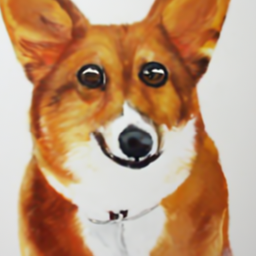I haven't tested this code with less than 16GB of GPU memory, but this is a bit surprising since each model is roughly 400M parameters and therefore around 800MB of memory.
One suggestion: try loading the checkpoint on CPU, and then moving to GPU, like so:
options_up = model_and_diffusion_defaults_upsampler()
options_up['use_fp16'] = has_cuda
options_up['timestep_respacing'] = 'fast27' # use 27 diffusion steps for very fast sampling
model_up, diffusion_up = create_model_and_diffusion(**options_up)
model_up.load_state_dict(load_checkpoint('upsample', th.device('cpu')))
model_up.eval()
if has_cuda:
model_up.convert_to_fp16()
model_up.to(device)
print('total upsampler parameters', sum(x.numel() for x in model_up.parameters()))
I get a OOM when loading the
upsamplemodel:the allocation error was
RuntimeError: CUDA out of memory. Tried to allocate 100.00 MiB (GPU 0; 3.94 GiB total capacity; 3.00 GiB already allocated; 30.94 MiB free; 3.06 GiB reserved in total by PyTorch) If reserved memory is >> allocated memory try setting max_split_size_mb to avoid fragmentation. See documentation for Memory Management and PYTORCH_CUDA_ALLOC_CONFmy
nvidia-smiis